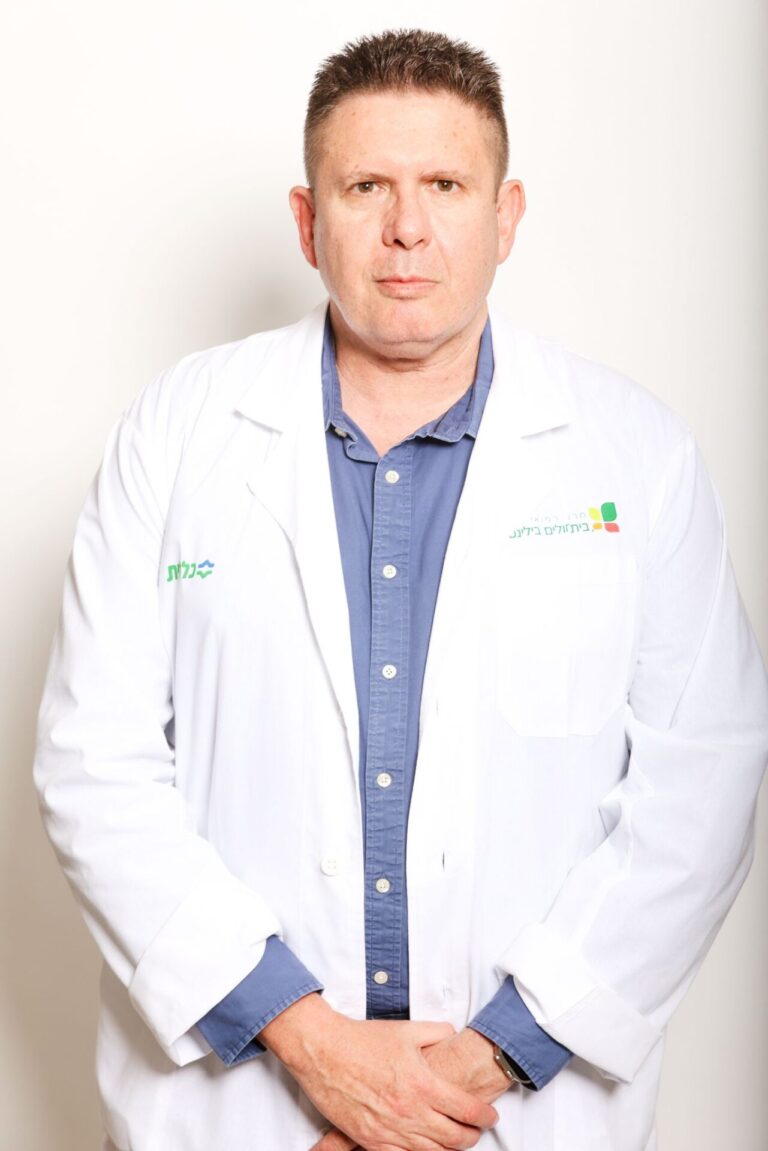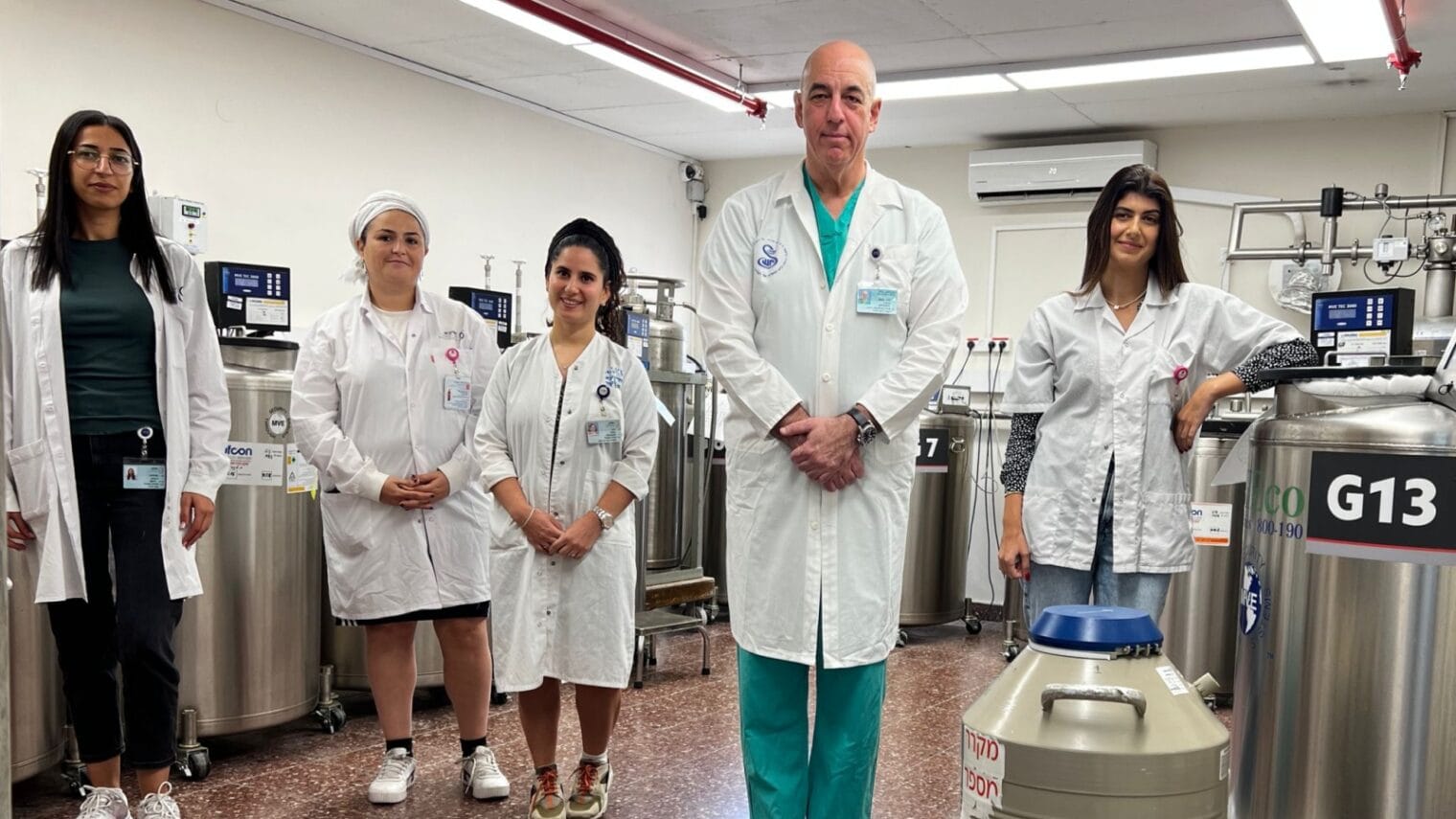More than 380 Israeli soldiers have been killed in the Swords of Iron war so far.
Many will live on through children already born. And others will live on through children yet to be conceived.
“Over the years, we’d occasionally be asked by a wife or fiancé to retrieve sperm from deceased men – soldiers or civilians –and freeze it for future use. Maybe one case per month. Now we’re seeing it more than in the past,” says Dr. Micha Baum, head of Sheba Medical Center’s sperm bank.
Posthumous sperm retrieval (PSR) involves the retrieval of viable sperm from a recently deceased man. The sperm is frozen and could be joined with an egg to achieve pregnancy.
Not all countries permit PSR. Some allow it under specific circumstances. In the United States, the rules vary by state. Some countries require a written directive signed by the man before his death, similar to an organ-donation card.
Genetic legacy
In Israel, a fiercely child-centered society with the world’s most liberal in vitro fertilization (IVF) policy, it’s not only widows who want to preserve a dead man’s genetic legacy.
This is a gift of life to the remaining family of the deceased — a very substantial gift.
Dr. Yoel Shufaro, Beilinson Hospital
In the last decade, parents have fought for the right to retrieve a deceased unmarried son’s sperm, hoping to create future grandchildren. These controversial requests must be approved by a family court judge, whereas a widow or partner’s request for PSR does not need such consent.
In 2022, the 24th Knesset advanced legislation allowing parents to request sperm retrieval directly, without court approval. The proposal died along with that short-lived government.
Once the war started with the infamous Hamas massacres and kidnappings on October 7, the matter became urgently relevant.
“There is more concern now, with so many soldiers killed, that parents should have the opportunity to preserve their son’s sperm,” says Baum, who is an IVF specialist.
A temporary order
Due to so many fallen soldiers since October 7, the Israeli Ministry of Health’s Council for Gynecology, Genetics and Neonatology issued a temporary order, valid through November 30, permitting parents to request a hospital to retrieve their deceased son’s sperm without a judge’s permission.
“The deceased’s widow or regular partner does not usually have to submit a request to court, unless one or more of the deceased’s relatives object to the procedure,” according to the Ministry of Health’s guidelines.
“The deceased’s parents (or any other relative) need to file a request for approval with a family court. Over the course of the Swords of Iron War, hospitals have been instructed that until 30.11.23 they may also approve requests for posthumous sperm retrieval from the deceased’s parents, without referring them to a family court, on the condition that they assume that filing a request with a family court may render it impossible to retrieve sperm in light of the time passed since the moment of death, except in cases where the deceased’s spouse or any other family member objects to the posthumous sperm retrieval, or in case of disagreement between the parents.”
Parents gaining direct hospital approval under this temporary order will still need to go to family court a year later seeking permission to use the sperm for assisted reproduction, just as widows do.
“In case of a request submitted by the deceased’s parents, as [of] today, it is only possible to use the sperm if it can be proven that this was the deceased’s will, and subject to the court’s approval. Only a woman who is not related to the deceased may use the sperm, conceive, give birth and be the child’s mother for all intents and purposes,” according to the Health Ministry.
Tel Aviv Sourasky Medical Center, Sheba Medical Center, Shamir Medical Center and Beilinson Hospital were asked to form a duty rotation to fulfill all PSR requests during the war.
A short window
When it’s Sheba’s turn, the body is brought to Dr. Gil Raviv and his urology team. They surgically remove seminiferous tubules from the testes, then bring this testicular tissue to the sperm bank’s lab, where the sperm are extracted. The procedure can take a few hours.
“A healthy man’s ejaculate has tens of millions of cells you can readily find,” says Dr. Yoel Shufaro, chief of Beilinson Hospital’s fertility and IVF unit. “But in testicular tissue, the spermatozoa are the minority because this is the factory where they are made. You have to separate them out, taking only the mature ones and not those in formation.”
Most critically, PSR must be done within a narrow timeframe.
“We need to retrieve the sperm not more than 72 hours after the death, though it depends on the temperature and condition of the body,” Baum explains.
“We try to do it within 24 to 36 hours. We know that after 72 hours it can be possible, in one case even 96 hours. At the beginning, we tried to retrieve sperm from a [civilian] victim 100 hours after death but unfortunately the sperm were not viable anymore.”
The civilian victim was one of hundreds murdered at the Supernova music festival near Kibbutz Re’im. By request of their partners, sperm was retrieved from four of these victims.
Since then, each of the four hospitals is performing several PSR procedures each week on deceased soldiers by request of partners and parents.
Baum believes Israel leads the world in PSR for men killed in action. “There are some cases in the United States and maybe in Ukraine, but not to the extent that we do it here in Israel,” he tells ISRAEL21c.
The emotional side

Shufaro tells ISRAEL21c that performing PSR on fallen soldiers is challenging not only technically but also emotionally for the Beilinson gynecologists and embryologists receiving young men’s bodies disfigured by bullets or explosives.
“Our main business is helping to bring new life into the world. It is extremely difficult for us to handle death on such a frequent daily basis,” he says.
And it is wrenching to have to tell a grieving family, still in the seven-day mourning period, that few living spermatozoa were found in the tissue.
When live sperm are successfully extracted and frozen, however, “this is a gift of life to the remaining family of the deceased — a very substantial gift,” Shufaro says.
He still vividly recalls a case from 23 years ago, when a new father was rendered brain dead after being hit by a car. His wife asked Shufaro’s unit to cryopreserve her husband’s sperm, and over the next decade she gave birth to three more children.
“We completed her family,” says Shufaro. “It was very fulfilling to know we could give her that gift. This is the reason the Health Ministry changed the current regulation [regarding PSR] because when a tragedy is so big you have to give people hope.”

















